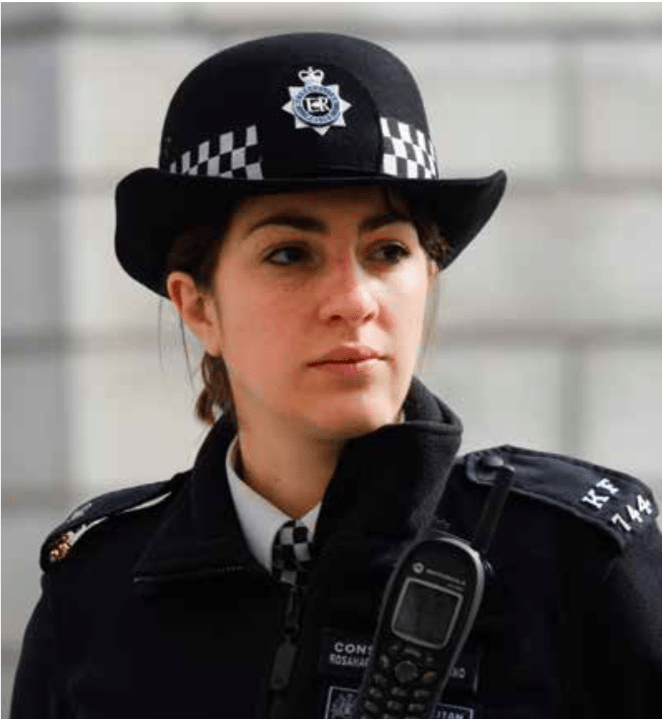 19 Mar
19 Mar
A new Briefing Paper published by EVAW today (11 July) finds that the 42 Police and Crime Commissioners’ response to domestic violence, sexual violence and other forms of violence against women and girls is “haphazard” and unreliable, combined with worrying denial about the fact that these crimes are widespread and very disproportionately affect women and girls.
The new End Violence Against Women Coalition briefing, ‘England and Wales Police and Crime Commissioners: Are they working for women and girls?’, is based on a review of the 42 England and Wales PCCs’ Police and Crime Plans – the strategic document which PCCs are required to produce after consultation and assessment of local policing needs.
It finds that the devolution of police priority setting to PCCs has led to a very significant divergence from the national policy framework in this area, which for almost a decade has recognised the need for a prominent and joined up response to all forms of violence against women and girls – a major part of everyday policing work.
The EVAW Coalition is concerned that the PCCs’ failure to recognise the scale and then prioritise action on violence against women and girls is likely to be seriously impacting on both the setting of policing priorities and the commissioning of services to support victims. As such, the Coalition is questioning whether this form of devolution of policing power can really be said to work for women and girls.
End Violence Against Women Coalition Co-Director Sarah Green said:
“We are really worried to have discovered, on a reading of all the PCCs’ Plans, that many are struggling with the basics.
“It is estimated that one in six of all murders are domestic violence related murders of women, and it is estimated that there are almost half a million sexual assaults every year, so it is very concerning to find that these elected policing leaders are commonly unsure how to term different forms of abuse, and that many maintain a determinedly ‘gender neutral’ approach.
“Half the PCCs do not even mention forced marriage, so-called ‘honour-based violence’ and FGM in their Plans, even though these are known to be relevant in every police force area.
“And we believe this failure to recognise the reality of women’s and girls’ lives and the scale of abuse is what leads ultimately to actual policing activity such as the recent West Yorkshire sexual violence poster campaign which told young women not to “party hard”, and the absurd confining of forced marriage into anti-terrorism and ‘Prevent’ work rather than women’s and girls’ rights and equality.
“There is more than enough knowledge and understanding of sexual violence and forced marriage at local and national levels to recommend more effective policing approaches than these, but this can be difficult now when a PCC has a poor or even no appreciation of what drives abuse.
“The effect is also likely to be catastrophic on victims’ services as PCCs now have enormous local commissioning power and if they do not understand the life-saving nature of rape counselling support, or the critical value of support services run ‘by and for’ BME women, they are unlikely to lead commissioning processes which recognise and fund these according to local need. We believe this is contributing to the funding crisis in the women’s voluntary support sector, and as such is discriminatory.”
The Briefing Paper concludes that it may be fair to say that women and girls in different parts of England and Wales now receive very different commitments to their safety and protection from their local police leaders.
End Violence Against Women Coalition Co-Director Sarah Green concluded:
“We are worried that the devolution of policing has led to a situation where PCCs are not setting local policing priorities according to the irrefutable evidence and need of women and girls. If elections for these police leaders are to continue, we need a mechanism for ensuring those who are elected to this critical, powerful role have a duty to take into account women’s and girls’ needs.”
With PCCs due to stand for re-election in 2020, women’s groups urge:
- Secretaries of State to instruct PCCs to recognise the seriousness and connectedness of crimes of violence against women and girls, and to rewrite their Plans and policing and victims strategies accordingly.
- PCCs to make an assessment of the scale and nature of all forms of violence against women and girls in their area, and review their policing priorities and spending plans accordingly. They should involve local communities and especially local women’s organisations while doing this.
- Chief constables, other police leaders, and CPS leaders, to make representations to their PCC about their operational reality of responding to these crimes, and support the development of a more joined up and strategic local approach.
- MPs to make representations to and meet with their PCCs and enquire directly about their specific aims on ending violence against women and girls, and their commitments to sustainable support services for survivors of abuse.
- Local media organisations to commission investigations into the prevalence and impact of violence against women and girls locally, and encourage local debate on how it needs to be tackled; the invisibility of much of this abuse compared to other crime types arguably reduces the pressure on PCCs, police and courts to make it a priority.
Download the report in full – Police and Crime Commissioners: Are they working for women and girls?
Recommended ARTICLES
 19 Mar
19 Mar
 05 Mar
05 Mar
 27 Feb
27 Feb

